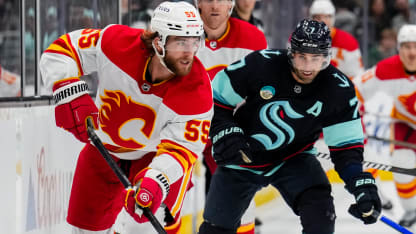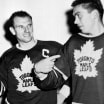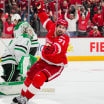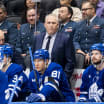The Coaches Room is a regular feature throughout the 2023-24 season by former NHL coaches and assistants who turn their critical gaze to the game and explain it through the lens of a teacher.
In this edition, Dean Evason, former coach of the Minnesota Wild and assistant with the Washington Capitals and Wild along with six seasons as the coach of the Milwaukee Admirals in the American Hockey League, writes from his personal experiences about how coaches can handle their teams in the lead up to the NHL Trade Deadline, which is March 8 this season.
These weeks leading up to the NHL Trade Deadline can be the hardest time of the season mentally for coaches because you know your team and who is on it today, but that could change tomorrow.
Your job as a coach is always to put the Xs and Os together, the systems together, decide and implement how we play in the defensive zone, the neutral zone, and how we're going to forecheck in the offensive zone, routes and schemes and what have you. But more than ever coaches are working on the psychology end of it, the mental part of it, the individual buildup of players and then collectively how your room thinks and reacts.
So it is stressful at this time of the year because with one move all of that can get thrown into a blender, but as a coach I have always taken the philosophy of remembering my job is to coach the team that I'm given.
I've been on teams or been an assistant coach with teams where the head coach is very vocal and specific about who they want, what they think they need, and communicating that to the general manager. And I've been around coaches who are very strong about it in the coach's room when the general manager leaves.
For my situation in Minnesota, when I was the coach management and our coaching staff communicated well together and then I stepped away from it to focus on coaching the team. I didn't want to get too involved in the actual looking at this player, that guy, this guy conversation. I communicated that we may need a second-line forward, secondary scoring, or a third-pair defenseman who is a big, strong, gritty, penalty-kill guy. But that was the extent of it.
I believe that's where the conversation between the coach and the GM should end, unless there's a specific player the GM is targeting, and the coach has worked with that player before so he can provide feedback positive or negative.
There are the pro scouts, the general manager, the assistant general manager, and that's their job. Our job as coaches, once the player or players are brought in, is to try to fit them into our puzzle and balance all the different scenarios as far as chemistry and minutes.
Sure, we know who is available, we know the players and the names that are out there, but it's so difficult in today's game because of the NHL salary cap.
For example, I can say I want X player, but if he's making $6 million a year there may be no chance he's coming to our hockey club. That's why I tried to step away from it. It's not my field. I'm not educated in it.


















